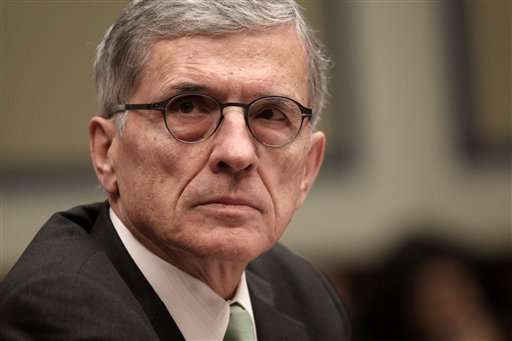FCC to phone companies: You can stop unwanted robocalls

Tired of automated phone calls urging you to vote for a certain candidate or pitching you a cruise vacation? You can now tell your phone company that federal regulators say it's OK to block them.
The question now is whether the phone companies have the technology to do it in a way consumers want.
The Federal Communications Commission on Thursday agreed that Verizon, AT&T and other telecommunication carriers aren't duty-bound to connect those annoying "robocalls" if a consumer doesn't want them. Consumer groups and several states had asked the agency to clarify this point because phone companies have said they worried about running afoul of rules that require them to connect every call.
FCC commissioners mostly agreed that call blocking technology or "do not disturb" services should not only be allowed but encouraged.
On a separate matter, the FCC also voted in favor of expanding its Lifeline program to provide low-income subsidies for broadband service.
Several companies already offer consumers the chance to block individual numbers. But that approach doesn't help much because callers can easily spoof their identification and make it appear as though they are calling from a different phone number.
USTelecom, a trade group that represents many of the major phone companies, said there is "no single technical solution" to the problem because of spoofed numbers.
"USTelecom's members will continue to develop and deploy tools to their customers in order to address these unwanted calls," said Jonathan Banks, a senior vice president at USTelecom, in a statement. "We look forward to continuing collaboration with government, law enforcement and technology providers to eliminate illegal robocalls."
Echoing the sentiment of many Republicans, the U.S. Chamber of Commerce Institute for Legal Reform said it opposed the move by the FCC because the group said it would "accelerate the growth of abusive and costly class-action lawsuits against businesses."
Unwanted phone calls, many of which are scams, remain a top consumer complaint even 12 years after Congress passed a law setting up the Do Not Call registry. The problem has gotten so bad nationwide that the FTC has offered cash prizes for technical solutions.
Consumers groups say that the emergence of new anti-robocalling technologies suggest that phone companies have the technical ability to spot robocalls. They say that the phone companies have been dragging their feet, probably because it's easier to allow the calls than to try to find a way to stop them.
One big impact of the new rules could be seen next year in the run-up to the presidential election. When creating the Do Not Call Registry, politicians exempted themselves: Campaigns are allowed to blast your landline with the automated calls, but not your cellphone.
While that rule won't change, phone companies will be allowed at the consumer's request to drop or send to voicemail any automated phone calls to their landline, including political calls. If phone companies find a workable solution and enough consumers sign on, campaign volunteers will have to place calls in-person, limiting their reach to voters.
Most often robocalls are scams that originate overseas. But spoofing techniques allow the scammers to make the number on the caller ID appear to be local.
One common example of a scam is "Rachel from Cardholder Services." The automated voice recording encourages listeners to press a number, which connects them with someone who might promise to lower their interest rates in exchange for an upfront fee. The FTC traced the original "Rachel" to multiple people inside the U.S. and demanded refund checks, but copycat scams continue.
© 2015 The Associated Press. All rights reserved.
















